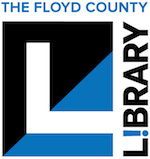How many times have you driven past this Billboard?

Does it frighten you? Hopefully, it makes you think about making a preparedness plan because unfortunately, disaster happens.
September is “National Preparedness Month”, and a good time to think about these tough topics. The next disaster is coming, not “if” but “when”. Hurricanes, tornadoes, extreme heat, extreme cold, mass shootings, wildfires, hate crimes, terrorism and war are all a part of our world today.
Americans were forever changed by the horrific events of September 11, 2001, when countless people were murdered by an act of terrorism. Now known as Patriot Day, 9/11 is a reminder that disasters happen.
Not too long ago, the Kentuckiana area was affected by the senseless mass shooting at the Old National Bank Building. Unfortunately, these types of tragedies are more and more common. Students and workers alike practice “active shooter” drills and are forced to think about “what would I do?”
On October 27, 2018 a Pittsburgh synagogue, Tree of Life, was attacked during morning services. The shooter killed eleven people and wounded six, including several Holocaust survivors. It was the deadliest attack on any Jewish community in the United States. This hate crime specifically targeted Jews.
Antisemitism and hate crimes have been on the rise in recent years. Frequently hate festers as a result of ignorance and misinformation. The following quote is attributed to Martin Niemöller, a prominent German pastor:
“First they came for the socialists, and I did not speak out—because I was not a socialist. Then they came for the trade unionists, and I did not speak out—because I was not a trade unionist. Then they came for the Jews, and I did not speak out—because I was not a Jew. Then they came for me—and there was no one left to speak for me”
In the end, there are no winners. Hate will inevitably destroy us all.
What can you do to stop this disturbing trend of terrorism and prepare for any disaster? Read widely. The Floyd County Library stocks many books for you to inform yourself about hate crimes, antisemitism, and disaster preparedness, among many others. Be sure to register here to join us for a screening of the documentary, “A Tree of Life: The Pittsburgh Synagogue Shooting” on Monday, September 30 at 5:30pm in the New Albany Library auditorium. The screening will be followed by a panel discussion. We welcome diverse attendees. Let’s put our heads together to make a safer world for all.
Here are some reading suggestions:
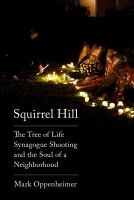 Squirrel Hill : the Tree of Life Synagogue shooting and the soul of a neighborhood by Mark Oppenheimer
Squirrel Hill : the Tree of Life Synagogue shooting and the soul of a neighborhood by Mark Oppenheimer
A piercing portrait of the struggles and triumphs of one of America’s renowned Jewish neighborhoods in the wake of unspeakable tragedy that highlights the hopes, fears, and tensions all Americans must confront on the road to healing.
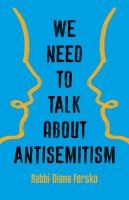 We need to talk about antisemitism by Diana Fersko
We need to talk about antisemitism by Diana Fersko
A millennial rabbi explores why we’re reluctant to discuss antisemitism–and empowers us to fight against it.
Antisemitism is on the rise in America, in cities and rural areas, in red states and blue states, and in guises both subtle and terrifyingly overt. Rabbi Diana Fersko is used to having difficult conversations with members of her congregation about the issues they face–from the threat of violence to microaggressions and identity denial. In We Need to Talk About Antisemitism, she gives all of us the ultimate guide to modern antisemitism in its many forms.
Exploring topics like vile myths about Jewish people and the intersection of antisemitism with other forms of discrimination, We Need to Talk About Antisemitism gives readers the tools they need to understand the state of antisemitism today. Fersko shows Jews and non-Jews alike how to speak up and come together, spreading a message of solidarity and hope. This is a timely read for anyone passionate about fighting for social justice.
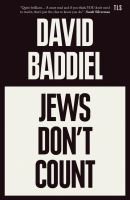 Jews don’t count : how identity politics failed one particular identity by David Baddiel
Jews don’t count : how identity politics failed one particular identity by David Baddiel
How identity politics failed one particular identity.
‘a must read and if you think YOU don’t need to read it, that’s just the clue to know you do.’ SARAH SILVERMAN
Jews Don’t Count is a book for people on the right side of history. People fighting the good fight against homophobia, disablism, transphobia and, particularly, racism. People, possibly, like you.
It is the comedian and writer David Baddiel’s contention that one type of racism has been left out of this fight. In his unique combination of reasoning, polemic, personal experience and jokes, Baddiel argues that those who think of themselves as on the right side of history have often ignored the history of anti-Semitism. He outlines why and how, in a time of intensely heightened awareness of minorities, Jews don’t count as a real minority.
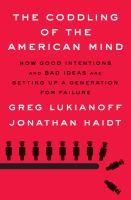 The coddling of the American mind : how good intentions and bad ideas are setting up a generation for failure by Greg Lukianoff
The coddling of the American mind : how good intentions and bad ideas are setting up a generation for failure by Greg Lukianoff
Something has been going wrong on many college campuses in the last few years. Speakers are shouted down. Students and professors say they are walking on eggshells and are afraid to speak honestly. Rates of anxiety, depression, and suicide are rising–on campus as well as nationally. How did this happen?
This is a book for anyone who is confused by what is happening on college campuses today, or has children, or is concerned about the growing inability of Americans to live, work, and cooperate across party lines.
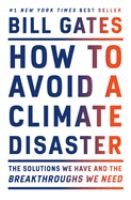 How to avoid a climate disaster : the solutions we have and the breakthroughs we need by Bill Gates
How to avoid a climate disaster : the solutions we have and the breakthroughs we need by Bill Gates
#1 NEW YORK TIMES BEST SELLER * In this urgent, authoritative book, Bill Gates sets out a wide-ranging, practical–and accessible– plan for how the world can get to zero greenhouse gas emissions in time to avoid a climate catastrophe.
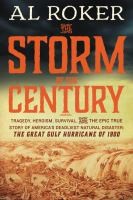 The storm of the century : tragedy, heroism, survival, and the epic true story of America’s deadliest natural disaster : the great Gulf hurricane of 1900 by Al Roker
The storm of the century : tragedy, heroism, survival, and the epic true story of America’s deadliest natural disaster : the great Gulf hurricane of 1900 by Al Roker
In this gripping narrative history, Al Roker from NBC’s Today and the Weather Channel vividly examines the deadliest natural disaster in American history–a haunting and inspiring tale of tragedy, heroism, and resilience that is full of lessons for today’s new age of extreme weather.
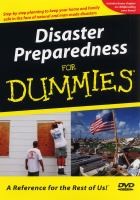 Disaster preparedness for dummies
Disaster preparedness for dummies
This program serves as a guide for families to follow in order to create a plan of action to follow in the event of a large scale emergency. With the advice of experts, this program provides instructions on creating a survival kit, caring for loved ones and pets in a disaster, and how to take shelter or evacuate.
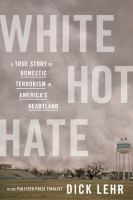 White hot hate : a true story of domestic terrorism in America’s heartland by Dick Lehr
White hot hate : a true story of domestic terrorism in America’s heartland by Dick Lehr
For fans of I’ll Be Gone in the Dark, the thrilling true story of a would-be terrorist attack against a Kansas farming town’s immigrant community, and the FBI informant who exposed it.
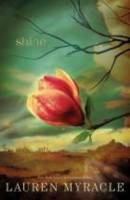 Shine by Lauren Myracle
Shine by Lauren Myracle
When her best guy friend falls victim to a vicious hate crime, sixteen-year-old Cat sets out to discover who in her small town did it. Richly atmospheric, this daring mystery mines the secrets of a tightly knit Southern community and examines the strength of will it takes to go against everyone you know in the name of justice.
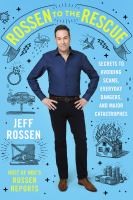 Rossen to the rescue : secrets to avoiding scams, everyday dangers, and major catastrophes by Jeff Rossen
Rossen to the rescue : secrets to avoiding scams, everyday dangers, and major catastrophes by Jeff Rossen
Do you know where to take shelter in an earthquake? How to bust a lying car mechanic? Save money at the store?
You’ll know now.
Every morning, millions of Americans watch Jeff Rossen explain how to solve our most harrowing problems, such as: how to put out a kitchen fire, find bedbugs, avoid rip-offs, and even how to survive a plane crash. In Rossen to the Rescue, he includes daring experiments, expert advice, and game plans for handling all the wild cards in life–big and small–while sharing personal, and sometimes embarrassing, anecdotes that he couldn’t tell on television. Overflowing with never-before-seen tips and tricks, this book is filled with enough hacks to keep you and your family safe…and it just might save your life.
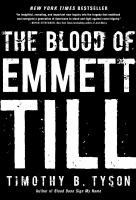 The blood of Emmett Till by Timothy B. Tyson
The blood of Emmett Till by Timothy B. Tyson
This extraordinary New York Times bestseller reexamines a pivotal event of the civil rights movement–the 1955 lynching of Emmett Till–“and demands that we do the one vital thing we aren’t often enough asked to do with history: learn from it”
